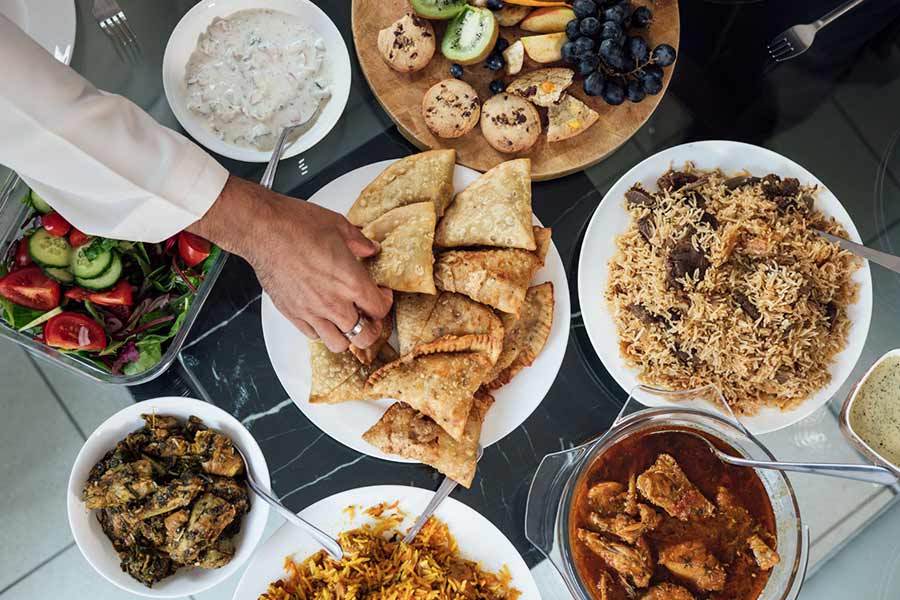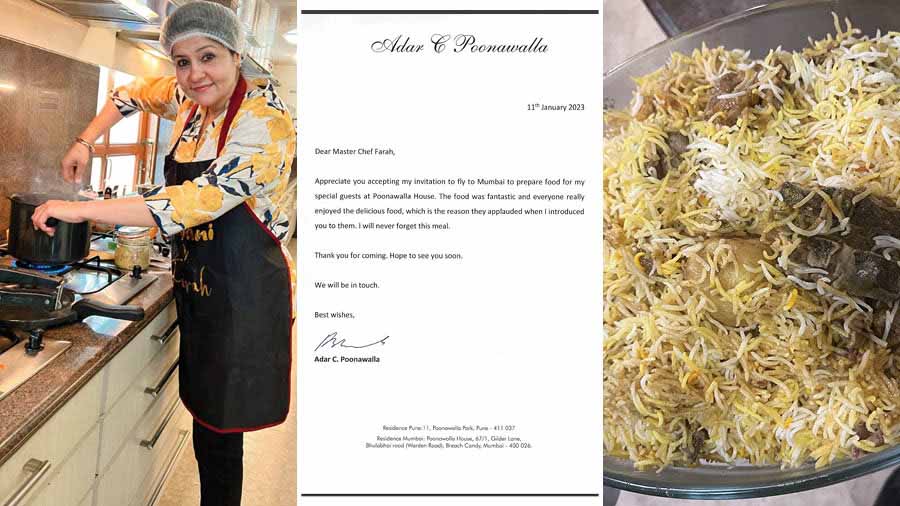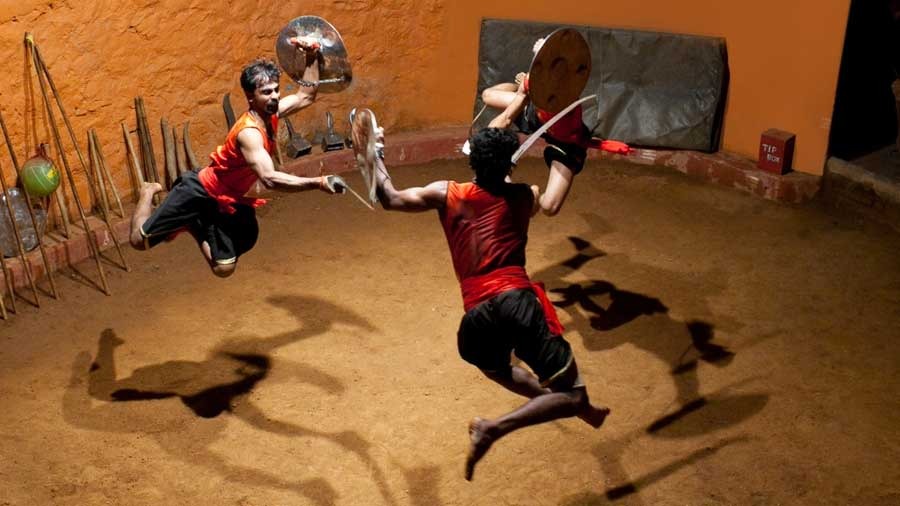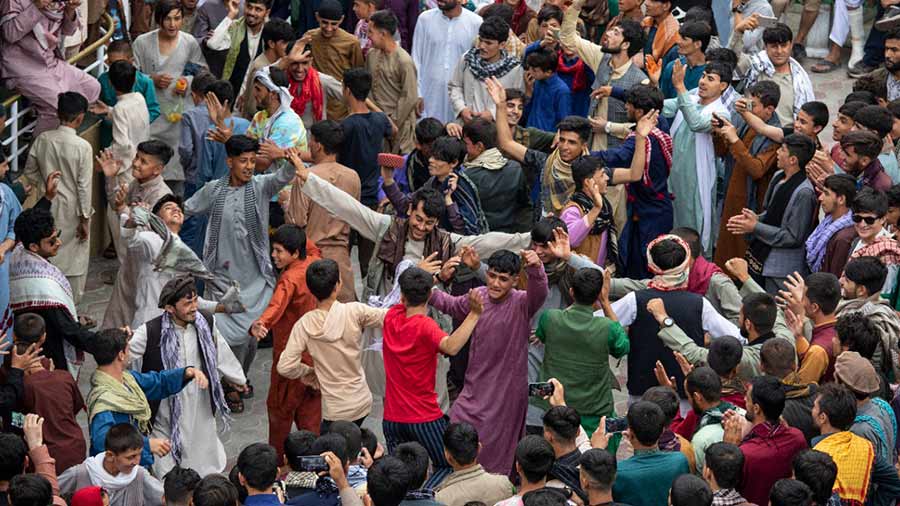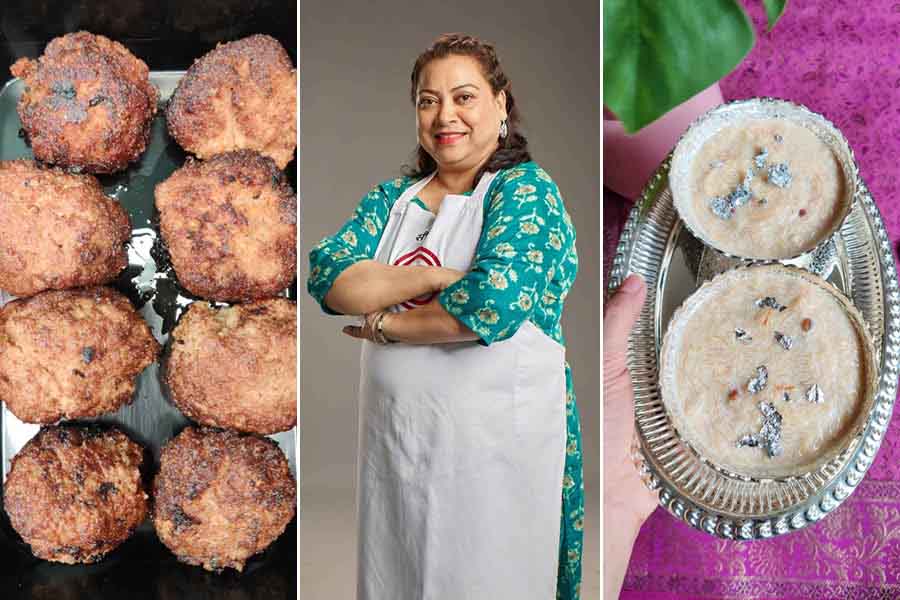Eid-Al-Adha or Bakr Eid is a day of giving and forgiving. Apart from Eid-ul-Fitr (celebrated after the month of Ramazan), this Eid is the greater Eid, which is observed after completion of the Hajj pilgrimage. It is celebrated with close family and friends over feasts and charitable acts. This Eid, My Kolkata peeked into the dining rooms of a few Kolkatans and asked them about the one dish without which their festive feast is incomplete. Here’s what they had to say…
The love story of mutton and the Kadirs
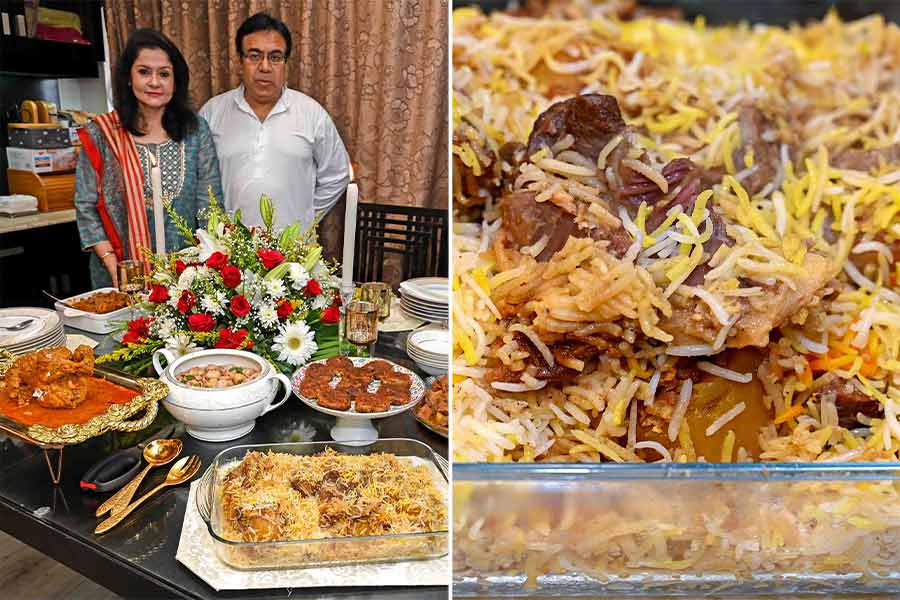
For the Kadirs, an Eid feast is incomplete without mutton biryani made by Farah
Farah Kadir of Beyond Biryani fame and Rubayat Kadir are popular among family and friends for their Eid feasts. For Eid-Al-Adha, they tweak their elaborate Eid-Ul-Fitr menu, but the one thing that does not change is the mutton biryani. “My mother was a great cook too, but I did not eat mutton before marriage because I disliked the smell,” said Rubayat, whose favourite was beef biryani. “But after I married Farah, she cooked mutton in such a way that I couldn’t spot any smell. That’s how mutton biryani became my favourite and it is her favourite too. We have to have the mutton biryani on the menu while other dishes can change. My favourites also include a few sweet dishes like Sheerkhurma and Sewai Ka Zarda that Farah makes.”
Farah Kadir, who cooks every item by herself, also voted for the Kolkata-style mutton biryani. Talking about food traditions and her favourites, she said, “There is the standard Calcutta Mutton Biryani that’s always there on every Muslim family’s dining table. That apart we always have a few kinds of kebabs. Today, on the menu is Mutton Muthia Kebab.”
‘Ma ke haat ka khana’ for Imran Sarfaraz
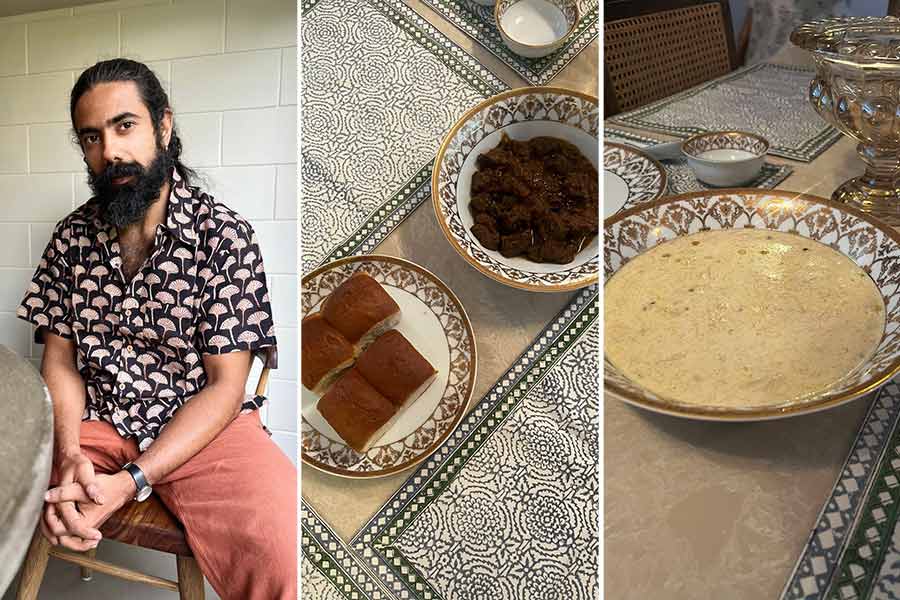
Sheerkhurma and kaleji masala made by his mother top the list of favourites for Imran
Kolkata boy Imran Sarfaraz, a strength and conditioning coach based in Mumbai, is visiting his hometown for Eid-Al-Adha. For Sarfaraz, an Eid feast is incomplete without home comforts — naan, kaleji masala and sheerkhurma, made by his mother. “Eid feast does not feel complete without the naan and kaleji (liver) dish my mother makes the traditional way. The spicy kaleji preparation goes deliciously well with the naan. My mother also makes a special sheerkhurma that has very simple ingredients — the milk is boiled and thickened for hours. Everything is home-cooked and is not unhealthy since she does not use refined oil.”
A Bengali-Muslim meal for Debjani Chatterjee Alam
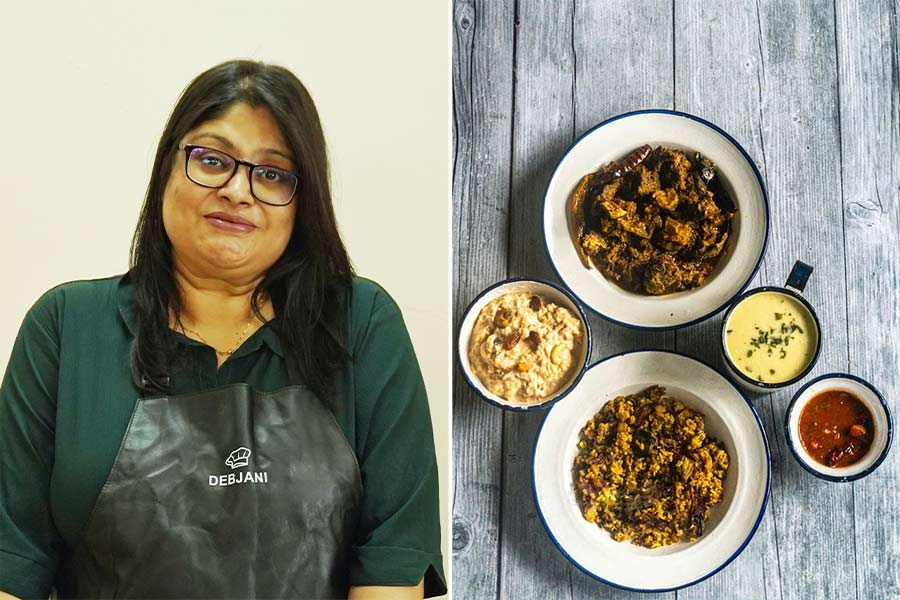
Unique dishes like a pumpkin and beef curry feature in Debjani's favourite Eid feast
Debjani Chatterjee Alam is a professional in corporate social responsibility, a recipe writer and a home chef who occasionally hosts food pop ups. Married to Md Mehebub Alam, who is from Birbhum, for 14 years, Debjani’s Eid celebrations are all about the Bengali-Muslim dishes cooked at her in-laws’ home. “There are a couple of dishes that I love. There are a variety of halwas that are made, like posto halwa. Preparations of beef like dingley gosht (pumpkin and beef curry) are some traditional dishes I like. The sweetness of the pumpkin adds to the flavour of the meat,” she said. Debjani also prepares Eid feasts at home, and one Eid platter stands out in memory. “I made an Eid platter consisting of dingley gosht, burhani, laal shak er tawk, kolje pulao, dudh lachhi.” This year they are not celebrating, because her husband is away from home, and there is work going on in the house, “but we have ordered in,” Debjani said.
Asif Ahmed’s Eid essentials — shami and galawati kebabs
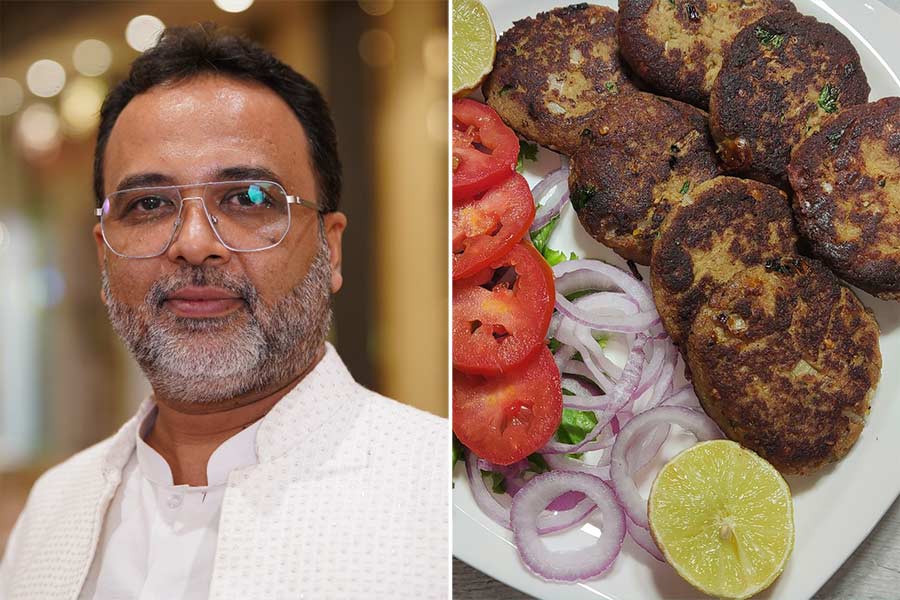
Asif cannot think of starting off an Eid dawat without shami and galawati kebabs made by his wife
Asif Ahmed, co-owner of Sanjha Chulha, cannot think of starting off an Eid dawat without shami and galawati kebabs — and he trusts no one but his wife to make them. “Dawats on Eid are home-cooked. It is a course-by-course feast, which is inaugurated by juicy mutton and beef shami kebabs. We have friends and family visiting us for Eid-Al-Adha and the meal is prepared by my wife, who is a great cook. Shami kebabs have always been on the menu for our family. It was made by my grandmother, then by my mother, and now by my wife.” Once the shamis are savoured, other dishes like biryani, korma and halwas are relished by the restaurant owner, and the summer does not deter the feast. “Be it hot, humid or anything — nothing comes in the way of enjoying mouth-watering dishes cooked for the feast.”
Bakr Eid special ‘Churri’ for Zareen Ali Desai
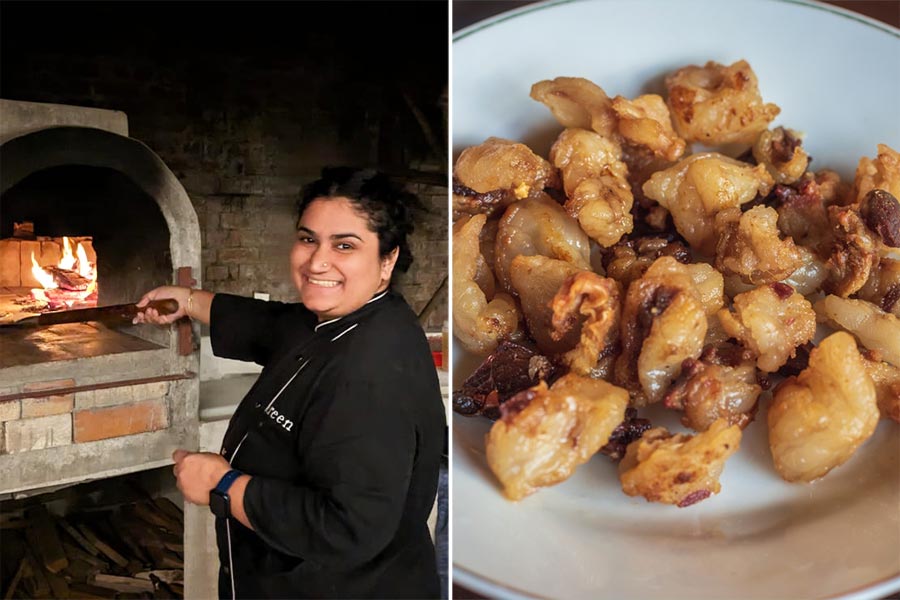
Zareen's favourite churri needs a strong heart but once you taste it 'there is no going back' she reckons
For Zareen Ali Desai, Bakr Eid is a day filled with lots of food, but also a lot of work. The meat brought home is divided into three parts — one third for the family, one third for relatives and friends, and the rest for the needy. The owner of Zee’s Coffeeshop and co-owner of Bagan Farm recalled a food tradition at home, “Before we’d divide the meat and parts, someone would quickly make a bhuna with kaleji, phepra, or gurda, to be eaten as breakfast with hot rotis.”
But for the foodpreneur, the one dish that stands out is churri. “We would never ever make churri other than on Bakr Eid.The dish smells, I won’t lie, and it is not for the weak at heart, quite literally. But once you taste it, there’s no looking back!” she said. Churri is bits of meat deep fried in goat fat, which is then seasoned with salt and enjoyed as a hot, crispy snack. “One very fond memory, maybe even my first time eating churri, was at my khala’s (aunt) home in Allahabad. The whole family had gathered there after the gosht distribution, and bits of meat were being fried in a huge wok-like kadhai. There was laughter, gossip, chai and a general feeling of happiness and togetherness. Something that you rarely get to experience anymore. It is a memory from simpler times, one that I'll forever cling to.”
Biryani and sevaiyaan from neighbours and friends
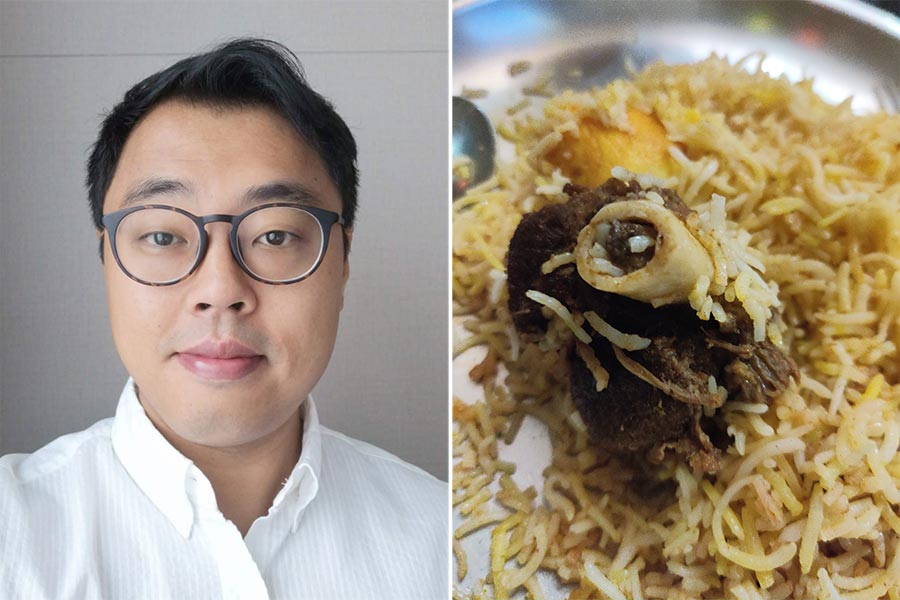
For Chris, Eid is about a feast with biryani and kebabs at neighbours' and friends' homes
Chris Chen, the Chinese co-owner of Calcutta Bungalow, grew up in Colootola till he was 16, before moving to Bow Barracks. Ask him about any nondescript eatery in Zakaria Street and Colootala, and he is bound to offer the best suggestions. “In Colootola, I remember my neighbours brought biryani made with qurbani meat. I would love to eat home-cooked biryani with tender pieces of meat. There’s no Eid without biryani,” he reminisced. “Another favourite of mine was sevaiyaan; I absolutely loved it! Eid would be just incomplete for me if I did not eat biryani and sevaiyaan. Chris, a Xaverian from Kolkata, also shared memories of visiting his friend’s house. “Eid is a time of sharing and feasting, and those moments made the celebration truly special,” he added.
